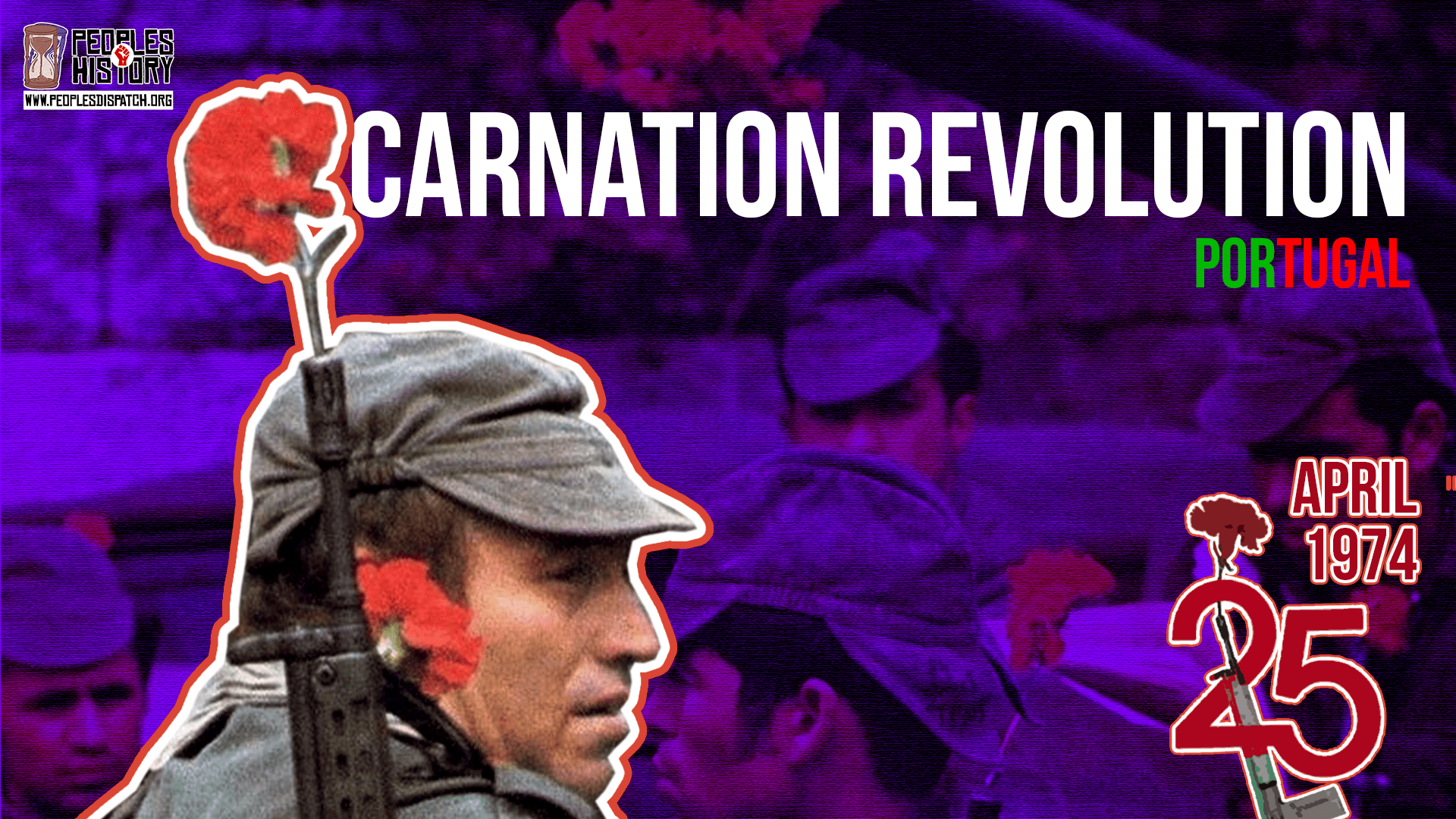The Carnation Revolution marks an important milestone in Portuguese political history and in the history of the modern world as it not only brought down the authoritarian Estado Novo regime in Portugal, but also paved the way to the independence of many Portuguese colonies in Africa. The revolution began as a coup organized by a section of army officers, the Armed Forces Movement (MFA), in Lisbon, but swiftly received mass support and was supported by popular participation on the streets. It unfolded as a nonviolent revolution that ultimately deposed the regime on April 25, 1974. That day, civilians greeted the revolutionary ‘rebel’ soldiers in the peaceful resistance with carnations. The revolution was thus memorialized as the Carnation Revolution and is celebrated every year on April 25 as the Freedom Day in Portugal and is a national holiday.
The Estado Novo regime was a conservative authoritarian junta that came to power in 1933 following the coup against the democratic First Republic in Portugal. The Estado Novo regime’s 41-year-rule was notorious for the repression of civil liberties and political freedoms. The regime also violently repressed independence movements in various Portuguese colonies. Its fall brought an end to the colonial war led by the Portuguese army in the colonies and saw the liberation of countries like Angola and Mozambique.





